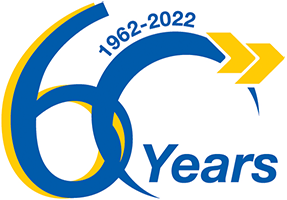In accordance with its mission and the need to monitor and address critical situations by strengthening the relationship of trust with stakeholders, Brianza Plastica has always been committed to preventing risks that could undermine the responsible and sustainable management of its business. To support this, it has set up an IT portal for “Whistleblowing” reports, which complies with Legislative Decree no. 24 of 10 March 2023 on whistleblowing, and implements Directive (EU) 2019/1937 of the European Parliament and of the Council on “the protection of persons who report breaches of Union law and containing provisions regarding the protection of persons who report breaches of national laws.”
The term “Whistleblowing” refers to the act of reporting unlawful conduct or irregularities within an organisation. It is an action taken by a person (e.g. employee, customer, supplier, etc.) to bring to light and prevent risks and situations that could harm the organisation itself.
The main goal of whistleblowing is to resolve (or, if possible, prevent) problems stemming from management irregularities, allowing critical issues to be addressed quickly and with the utmost confidentiality.
PORTAL DEDICATED TO SENDING REPORTS
What can be reported
Conduct, acts or omissions that are detrimental to the public interest or the integrity of public or private administrations or companies, including:
- administrative, accounting, civil or criminal offences;
- significant unlawful conduct as defined by legislative decree 231/2001 or violations of organisation and management models provided for therein;
- offences falling within the scope of European Union or national laws and regulations relating to the following sectors: public procurement; financial services, products and markets and prevention of money laundering and terrorist financing; product safety and compliance; transport safety; environmental protection; radiation protection and nuclear safety; food and feed safety and animal health and welfare; public health; consumer protection; privacy protection and personal data protection and security of networks and information systems;
- acts or omissions detrimental to the Union's financial interests;
- acts or omissions relating to the internal market;
- acts or conduct that undermine the object or purpose of the European Union provisions.
What CAN NOT be reported
Disputes, claims or requests related to a personal interest of the whistleblower or the person making a complaint to the judicial or accounting authorities, which pertain exclusively to their individual or public employment relationships or their relationship with hierarchically superior people.
Protection of the reporter and reported party
Brianza Plastica guarantees the confidentiality of personal data as well as the confidentiality of the information contained in the report and received by all involved parties.
Under no circumstances will any form of retaliation or discriminatory actions, whether direct or indirect, be permitted or tolerated against the person making the report, particularly when the reasons are directly or indirectly connected to the report. The same types of privacy protection are extended to whistleblowers, with the caveat that they may be required to disclose their identity where required by law (e.g. at the request of judicial authorities).
Archiving and storage
Electronic documents and records are stored within the appropriate portal, or in a directory protected by authentication credentials known only to members of the Whistleblowing Committee.
Hard copy documents are kept inside a locked cabinet that can be accessed only by members of the Whistleblowing Committee. In compliance with the confidentiality obligations set out in European and national legislation governing personal data protection, reports and related documents are kept for the time necessary to process the report and, in any case, for no more than 5 years when the final outcome of the reporting procedure is communicated.

